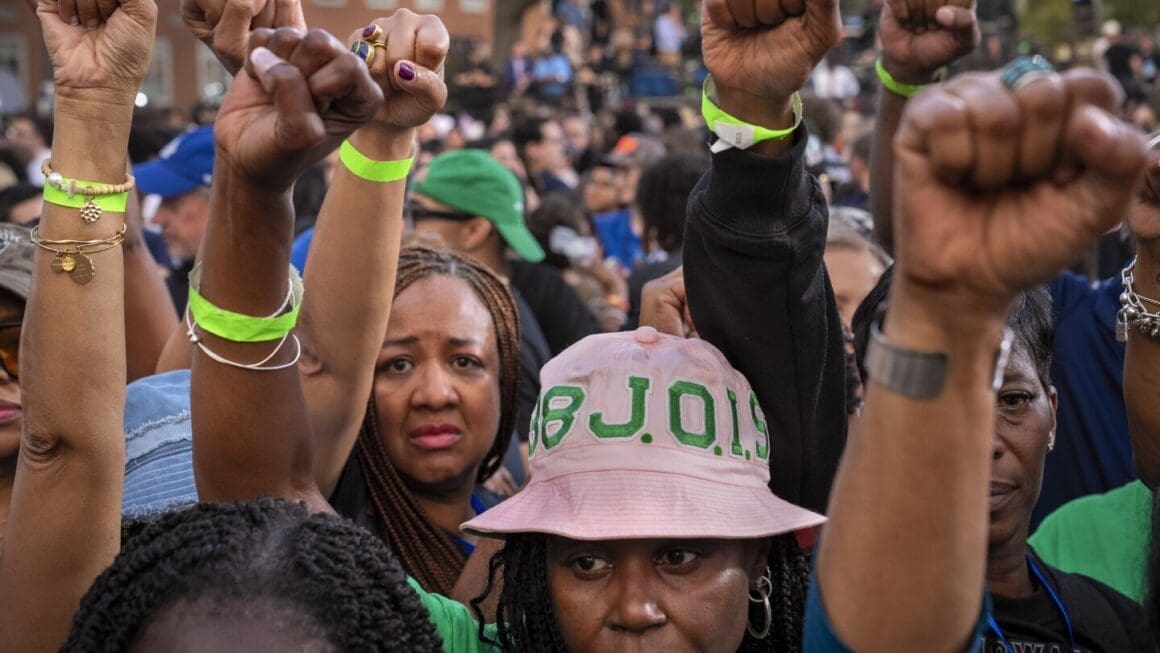In the wake of the recent election, many Black women feel compelled to reassess their political involvement after witnessing increased support for Donald Trump within minority groups. Despite the historic candidacy of Democratic Vice President Kamala Harris, who stood to become the first female President of Black and South Asian descent, Trump’s victory by securing the popular vote has led to a significant disappointment among these politically active women. This outcome has sparked a conversation about their continued role in American democracy and movement organizing.
Teja Smith, a social media advocate, exemplified the sentiment of disillusionment when she snickered at the thought of participating in another Women’s March against Trump. Her laughter masked a deeper sense of resignation, acknowledging that intense political resistance might not yield the desired change. This reaction is reflective of a broader sentiment among Black women who have historically been the backbone of electoral mobilization in their communities.
Data from AP VoteCast reveals that 60% of Black women identified the future of democracy as their primary voting motivation, surpassing other demographic groups who focused on issues like the economy or abortion. However, with Trump set to return to office soon, there’s a growing call among Black women to prioritize personal well-being and mental health, rather than exhaust themselves in political struggles that often marginalize their voices and concerns.
LaTosha Brown, a known figure in voting rights advocacy, drew an analogy to the North Star, suggesting that just as this star serves as a reliable guide, Black women have been dependable leaders in social justice movements. Yet as she stated, Black women are not destined to bear the burden of guiding a nation that frequently disregards their contributions. This introspection has led many to reconsider their roles in upcoming social and political battles.
Historically, Black women have played vital roles in pivotal movements, from suffrage to Civil Rights and more recently, Black Lives Matter. Yet, despite their tireless advocacy, Trump garnered significant support from young men of color and white women, illustrating a divergent political landscape.
Olivia Gordon, a lawyer, voices concern about the potential void left if Black women significantly reduce their activism. She fears that this shift might abandon communities that largely depend on their leadership. Meanwhile, Tenita Taylor explains her decision to vote for Trump as a strategic choice driven by economic concerns, demonstrating the varied political calculus within the Black community.
The recent dynamics have caused a shift from traditional roles, prompting Black women to step back as principal defenders of democracy. They are urging other groups to elevate their efforts and share the responsibility for societal advancements. Nicole Lewis, a therapist, sees this as a potential catalyst for other demographics to rise to the occasion, balancing the demands of activism with the need for self-care.
The election outcome has instigated a complex reassessment among Black women about their civic engagement and contributions to political movements. Although historically pivotal in American social change, the present political climate and Trump’s return to office have compelled many to retreat momentarily and focus on self-preservation. This step back is not an abdication of responsibility but a call for others to recognize and share the load in striving for a more inclusive democracy.
Source: APNews











